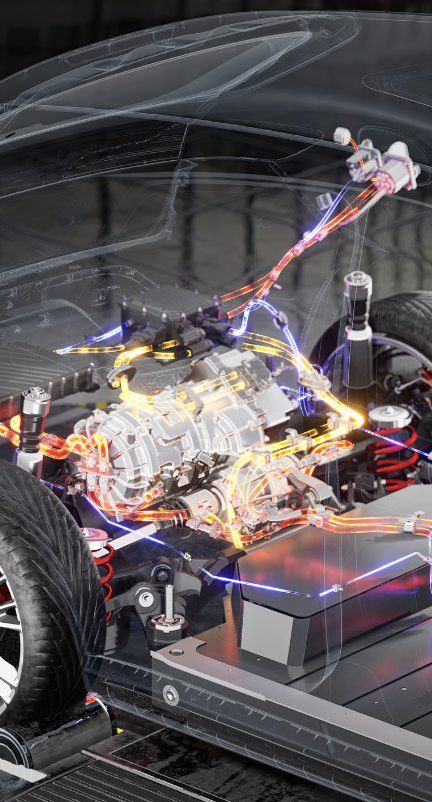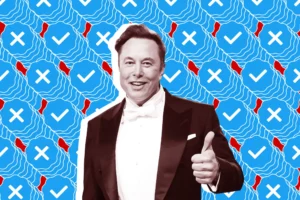The European Union said on Wednesday that it would increase the tariffs that it would apply on electric cars manufactured in China
It was announced in a statement that the European Union (EU) would impose a tariff of 38.1% on manufacturers of battery electric vehicles (BEVs) that did not assist with its inquiry. Additionally, the EU will impose a reduced charge of 21% on automobile manufacturers in the Asian nation that collaborated but have not been “sampled.”
An announcement was made on Wednesday by the European Union that it will impose higher tariffs on imports of electric vehicles from China. The EU said that these imports benefit “heavily from unfair subsidies” and constitute a “threat of economic injury” to electric car manufacturers in Europe.
After doing preliminary research, the European Union Commission, which is the executive branch of the European Union, came to the conclusion that the value chain for battery electric cars in China “benefits from unfair subsidization.” Furthermore, the Commission said that it is in the EU’s best interest to apply “provisional countervailing duties” on BEV imports from China.
The investigation that was initiated by the EU in October led to the imposition of the extra tariffs. The taxes are now provisional, but they will be implemented beginning on July 4 in the event that negotiations with Chinese officials to find a solution do not produce productive results, according to a statement released by the European Union Commission. The installation of interim tariffs will be followed by the implementation of definitive measures within a period of four months.
“Therefore, the influx of subsidised Chinese imports at artificially low prices presents a threat of clearly foreseeable and imminent injury to EU industry,” the Commission concluded. “This is because of the phenomenon of artificially low prices.”
In an interview with CNBC on Wednesday, the European Union Commissioner for Trade Valdis Dombrovskis said that the probe was based on “facts and evidence.” He also stated that interaction with Chinese authorities and stakeholders over possible solutions was still underway.
The probe of Chinese electric vehicle subsidies is founded on facts, according to the EU Trade Commissioner
According to statements that were translated by Google, a representative for China’s Ministry of Commerce told reporters on Tuesday that the decision made by the European Union was a “protectionist act” and that it lacked a factual and legal foundation.
It was said by the ministry that the conclusions that were published in the EU verdict lacked both a factual and legal foundation. It went on to say that the European Union had rejected the norms established by the World Trade Organization and had overlooked the fact that China’s advantage in the electric vehicle field is based on free competition.
It is a clear protectionist move, causing and worsening trade frictions, and “destroying fair competition” in the guise of “maintaining fair competition,” according to the spokeswoman for the organization. This action taken by the European Union would not only cause harm to the legitimate rights and interests of China’s electric car sector, but it will also cause disruption and distortion in the supply chain of the global automotive industry, which includes the European Union.
A break down of tariffs
A tariff of 38.1% is being imposed by the bloc on manufacturers of battery electric vehicles (BEVs) who did not comply with its examination. An even lower charge of 21% is being imposed on automobile manufacturers in the Asian nation who collaborated with the investigation but have not been “sampled.”
The Commission also published a series of individual tariffs, which Dombrovskis said are connected to their participation with the investigation as well as the quantity of information that they provided. He went on to say that the rates are lower for those businesses that exchanged information.
Geely was hit with a levy of 20%, while the main Chinese manufacturer of battery electric vehicles, BYD, was subjected to a tariff of 17.4%. A tax of 38.1% has also been levied by the EU on the automobile manufacturer SAIC. During the continuing investigation by the EU, samples were taken from all three of the manufacturers.
The Commission said that Tesla, which is owned by Elon Musk and has a gigafactory in Shanghai, may “receive an individually calculated duty rate at the definitive stage” in response to a “substantiated request.” In an interview with CNBC, Dombrovskis provided more explanation that Tesla was arguing for reduced tariff rates, which the Commission was now investigating.
“We can also look more in depth in a specific situation of Tesla and subsidies [that] Tesla has specifically received in China, and that may indeed lead to different levels of countervailing duties,” he added. “We can also look at another situation that is specific to Tesla.”
As a reaction to the news made by the EU, Nio said that it was committing to an ongoing commitment that was “unwavering” to the electric vehicle market. We firmly reject the use of additional tariffs as a tactic to block the regular global commerce of electric cars. This is something that we strongly hold against. Rather than fostering global environmental preservation, emission reduction, and sustainable development, this strategy seems to be counterproductive, according to the report.
France was one of the countries that supported the idea of increasing levies, stating that Europe needed to protect itself from the manufacturing techniques and huge subsidies that are prevalent in China. More criticism has been leveled at Germany on the move, which it believes has the potential to spark a larger trade war.
There are dangers for European automobile manufacturers, particularly in the event that China was to respond, according to officials from German automobile manufacturers.
Over the last several months, trade tensions between the European Union and China have been rising, particularly in regard to electric vehicles. Included in this is the European Union’s probe into subsidies provided by the Chinese government to electric vehicle manufacturers, as well as allegations that Beijing is dumping surplus automobiles into the international market.
“These practices could threaten Europe’s own electric vehicle industry and crowd out local carmakers based there,” the European Union (EU) has said. Beijing has denied any misconduct on its part.
The United States of America, which is closely allied with the European Union (EU) on the topic, increased duties on items, including electric vehicles (EVs), imported from China in the month of May. In particular, the United States is planning to increase the taxes placed on imported electric vehicles from 25% to 100% beginning this year.
As a result of the expansion of China’s electric vehicle sector, top automobile manufacturers such as BYD are now vying with electric vehicle giants such as Tesla for market share. Additionally, Chinese enterprises have been extending their operations in Western countries, promoting themselves as a more cost-effective option to automobile manufacturers in the area.



